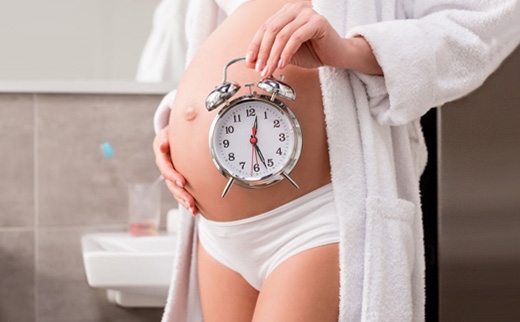
When you decide on in vitro fertilization (IVF) treatment, the things that await you may seem very uncertain. Your goal is to have a healthy baby, but the hard thing in this way is not knowing what to expect you in this journey. Sometimes the biggest hurdle is deciding which IVF clinic for treatment.
While each situation is unique and it is impossible to predict exactly how your cycle will go, we can draw a basic timeline and provide insight on the most important points along the way.
It is important to have a good understanding of what IVF is, how it works, and what you will experience during the process before starting IVF.
In this first meeting, we will obtain an extensive medical history from you and your partner and try to answer any questions or concerns you might have at this stage. Do not hesitate to ask your questions; it is vital that you feel well-informed and comfortable before you commit to treatment. We will review your diagnosis and the details of your desired treatment plan. You will learn how to self-administer the medications used in an IVF cycle.
We will begin a process known as Controlled Ovarian Hyperstimulation (COH) on the second day of your period after you have an ultrasound to evaluate your uterus and the ovaries. There are two main parts to the COH process.
The success rate in IVF treatment correlates with the number of eggs collected at that treatment cycle, therefore it is beneficial to produce as many follicles as possible per IVF cycle. We use fertility drugs to stimulate the development of multiple eggs in the ovaries at the same time. Women can respond differently to these medications. It depends on the ovarian reserve.
Ultrasounds and when necessary blood tests are used during this time to keep a close eye on the development of your follicles. This is the most time-consuming part of the IVF process, requiring an average of 5-7 clinic visits.
After about 8-10 days of fertility medication, once monitoring shows that your follicles have grown to an appropriate size, it is time to trigger the final maturation of the eggs with hCG (human chorionic gonadotropin) and schedule the ultrasound egg retrieval of 35-36 hours later. This hCG acts as the woman's natural LH peak and ovulation is normally triggered.
Oocyte pick-up (OPU) is an outpatient procedure performed in the clinic under light anaesthesia. It is performed easily and comfortably by vaginal ultrasonography and there is minimal risk.
Your husband will give sperm through ejaculation into a sterile cup at the same day of OPU by masturbation. If he has no live sperm in his semen, sperm is surgically taken through TESA/PESA or TESE procedure. If he will not be able to be in the clinic on the egg retrieval day, the sperm can be collected and frozen before egg collection day and thawed in the morning of OPU day.
After the eggs collected all are put in incubator and a few hours later, the cells around them are cleaned and ready for ICSI (Intracytoplasmic Sperm Injection). In ICSI procedure one single sperm is picked up with a micro manipulator and hollow needle and injected directly into each egg.
Embryos destined to result in pregnancy will progress through several well-defined stages including zygote, cleavage, and blastocyst stages.
Two days after fertilization, normal embryos are between two and six cells and 3 days after most embryos are between seven and nine cells and are ready for transfer. In the fifth day the embryo is named as blastocyst.
The embryo or blastocyst is transferred into the uterus via a thin, flexible plastic tube, which is gently passed through the opening in the cervix leading to the interior of the uterus. It is painless procedure.
Any remaining embryos that are not transferred can be frozen and used for a subsequent Frozen Thawed Embryo Transfer cycle.
After embryo transfer, you will take a progesterone supplement to help support the uterine lining and encourage implantation. This treatment, called luteal phase support, continues until the 10th gestational week if pregnancy occurs.
Approximately 10-12 days after embryo/blastocyst transfer, a pregnancy test is done to check the pregnancy. If the pregnancy test is positive, an ultrasound will be scheduled two weeks later to determine the implantation site and often detects a heartbeat.